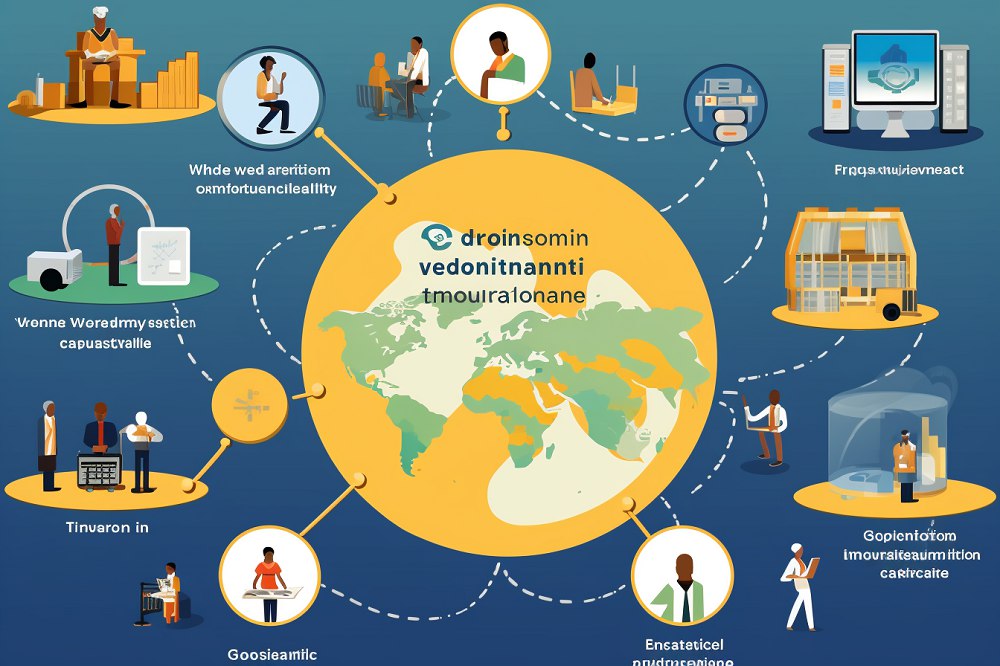The flagship digital currency, Bitcoin, recently surpassed the $40,000 threshold, moving the entire cryptocurrency market to a $1 trillion valuation. Following the Bitcoin price surge, Web3 firms now provide grants to encourage blockchain growth.
Supporting Web3 Development
The Worldcoin Foundation, in collaboration with OpenAI CEO Sam Altman, unveils Wave0, a $5 million grant program distributed in WLD tokens or stablecoins such as USD Coin (USDC). These grants are intended for community organizers, event sponsors, and larger projects.
Worldcoin is not the only firm championing such initiatives; other companies are also jumping in, distributing grants to support the development of Web3 infrastructure. The protocol emphasizes a wide range of interests within its grant program, especially decentralized finance (DeFi), decentralized exchanges (DEXs), nonfungible tokens (NFTs), digital wallets, gaming, and social finance are examples of these.
The grant program’s scope involves community mobilization, event support, and hackathon facilitation. Beyond these limits, the program funds larger-scale projects, focusing on multifaceted ventures.
Fantom’s Accelerator Program
Meanwhile, the Fantom Foundation has unveiled an accelerator initiative to boost innovation, allocating 1 million FTM tokens (approximately $300,000) to five new projects. As detailed in a press release, this move emphasizes the protocol’s leadership’s comprehensive mentorship, particularly guidance from its director, Andre Cronje.
Similarly, the Arbitrum community approved an additional $23 million earlier this month to accommodate all qualified grant applicants. As a result, the augmented budget for the Arbitrum grant program now exceeds $70 million, supporting 56 projects.
The strategic approach taken by the Fantom Foundation in launching the accelerator program demonstrates its commitment to stimulating growth in the cryptocurrency landscape.
The allocated tokens represent the Foundation’s determination to elevate promising ventures. Mentorship, particularly from influential figures such as Cronje, increases the likelihood that these projects will thrive and make meaningful contributions.
Expanding Access To Web3 Payment Systems
In a related development, Fuse Network recently announced a $10 million grant program to empower businesses, including access to cutting-edge Web3 payment systems. These grants are aimed at businesses that want to build and use Web3 payment technologies.
Africa has seen a significant surge in retail-sized transfers, accounting for 7% of transaction volume, exceeding the global average of 5.5%. Despite the impressive growth in African blockchain startups ($474 million in fundraising in 2022—a 429% increase from the previous year), the region commands a small fraction of the global scale.
According to Chainalysis data, Sub-Saharan Africa has the smallest crypto economy of any region. From July 2022 to June 2023, this sector accounted for only 2.3% of global transaction values.
Regardless, the continent commands an estimated $117.1 billion in on-chain value. The adoption volume in Nigeria, South Africa, Kenya, and Tanzania can’t be overlooked.
A Focus On Emerging Enterprises
According to Smargon, Africa has many companies with innovative Web3 use and business cases that need those solutions to reach customers better. The program, which is currently accepting applications, invites businesses and startups interested in exploring the transformative potential of Web3.
Interested enterprises can easily sign up for this initiative on the Fuse website. Founded in 2019, Fuse Network has established itself as an ardent supporter of various projects in the DeFi, NFTs, and blockchain gaming sectors.
The program’s focus on Africa highlights the region’s growing potential for harnessing Web3 innovations.
